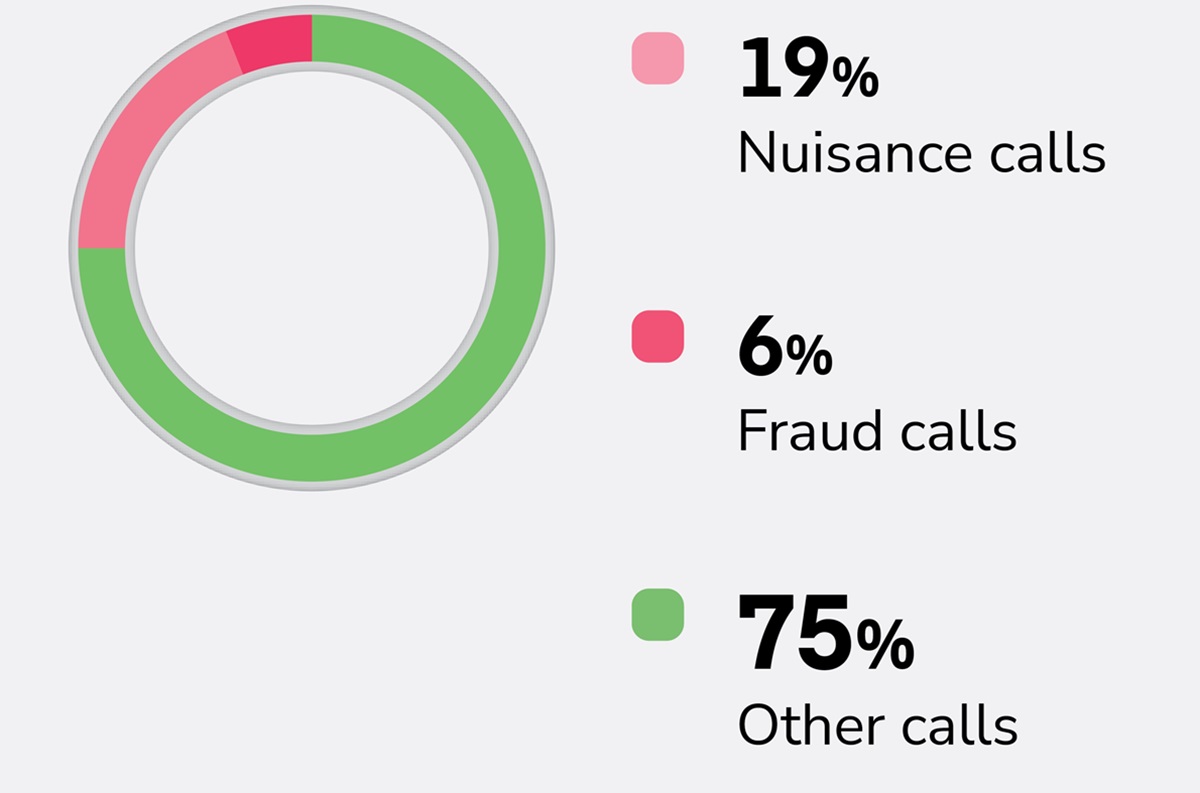Nuisance phone calls increase in Q4 and AI scams likely to go up in 2024 | Hiya

Voice security firm Hiya said that nuisance calls dropped in the fourth quarter, but Americans saw one of the lowest rates of fraud calls globally in the quarter. Still, there’s trouble ahead as lots of those calls are now likely to be AI calls.
While health insurance scams surged during the open enrollment period, the report forewarns of the rise of AI-generated voice clone scams in 2024, Hiya said. Using the voice of someone you know, those AI scam calls could have a much higher rate of success.
Hiya’s latest study found that 29% of calls Americans received last quarter from unknown contacts were spam, but only 1% were fraud
“What can we take from this data?” asked Kush Parikh, president of Hiya, in a statement. “Mainly that phone fraud and spam is a growing, global problem from which no phone-user is immune. Also that all members of the telecom community, from carriers to vendors, must work together to increase consumer confidence in the phone as being safe and trustworthy. A failure to accomplish this goal would result in a breakdown of the world’s most longstanding communication tool.”
VB Event
The AI Impact Tour – NYC
We’ll be in New York on February 29 in partnership with Microsoft to discuss how to balance risks and rewards of AI applications. Request an invite to the exclusive event below.
Request an invite
The data was in Hiya’s Q4 2023 Global Call Threat Report, offering insights into the prevalent phone spam and fraud landscape worldwide. Despite an increase in nuisance calls, the report reveals that Americans experienced one of the lowest rates of fraud globally in the last quarter.
Hiya’s study uncovered a surge in unwanted calls during the holiday season, totaling a staggering 7.3 billion globally in Q4, an increase from 6.55 billion in Q3. The spike was attributed to both new users joining the Hiya network and a seasonal impact, peaking at 357 million spam calls in the week after Thanksgiving.
In the United States, consumers faced an average of 15 spam calls per month, with a spam rate of 29%. However, only 1% of these unwanted calls were identified as fraud, marking one of the lowest fraud rates worldwide. Most fraud calls in the U.S. were effectively blocked by carriers at the network level, preventing them from reaching consumers.
The most common scams targeting Americans included Medicare, insurance, taxes, Amazon, credit cards, and payment platform apps such as Venmo, PayPal, Zelle, and Cash App.
France surpassed Spain in having the highest spam rate in Europe, reaching 47% in Q4. French residents received an average of 10 unwanted calls per month. Scams impersonating the French electric utility company, EDF Energy, and fraudulent schemes related to energy subsidies and solar panel installations were prevalent.
In the United Kingdom, residents encountered four spam calls per person each month, with a spam rate of 28%. HMRC tax scams and Amazon imposter scams were widespread. Notably, immigration-related scams emerged, with robocalls falsely warning recipients that their immigration visas had expired.
Brazilians faced an average of 24 spam calls per month, with 44% of unidentified calls categorized as spam and 9% as fraud. Banking scams dominated in Brazil, with scammers impersonating bank officials and employing tactics like the Ghost Hand Attack to gain control of victims’ phones remotely.
Oklahoma and Ohio led in spam rates in the U.S., both at 28%, while Alaska reported the lowest spam rate at 13%. Imposter scams, healthcare scams, and fraud related to internet/phone/mobile services, investments, and sweepstakes/lotteries were prevalent in Oklahoma.
Hiya Report methodology
The report is based on a representative sample of calls observed on the Hiya Voice Security Network, incorporating Samsung Smart Call enabled devices and the Hiya mobile app. Spam ratios denote the number of unwanted calls from non-contacts. Hiya continually refines its detection methods for nuisance and fraud calls.
VentureBeat’s mission is to be a digital town square for technical decision-makers to gain knowledge about transformative enterprise technology and transact. Discover our Briefings.



